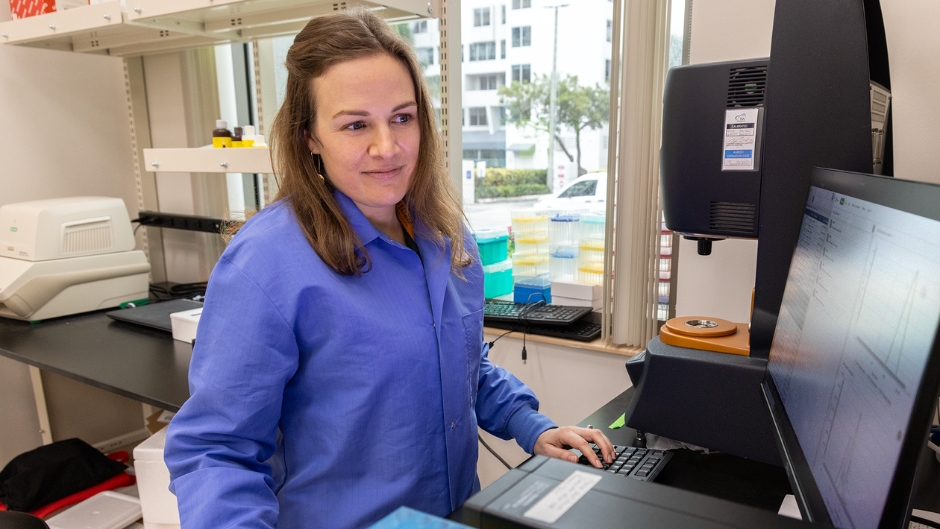Biomedical engineering assistant professor Courtney Dumont is at the forefront of a breakthrough for neural repair. Her work at The Miami Project to Cure Paralysis, leading the Neural Stem and Tissue Engineered Microenvironments (NeuSTEM) group, is rewriting the rules on how we might one day heal the central nervous system. Recognizing the potential of her research, the National Science Foundation (NSF) awarded Dumont the coveted CAREER award, a testament to the transformative impact of her work at the intersection of neural, vascular, and immune engineering.
Dumont's ambitious project utilizes polymeric nanoparticles (NPs) in a novel way, distinct from the lipid nanoparticles used in the more familiar COVID-19 mRNA vaccines. These specially crafted NPs don't just carry drugs; they are engineered to seek out and capture specific molecules within the body, signaling a revolutionary shift in drug delivery methodologies. The NSF CAREER Award will help showcase the NPs in a dual-phase operation to help the body heal from nerve damage. First, the NPs use a unique ingredient to target specific areas in the body that are causing inflammation. Then, they signal the body's cleanup crew which eliminates the NPs.
Because these particles are made from simple, safe materials that the body can easily break down, the NPs are eliminated from the body like how it breaks down sugar. This shows how Dumont is using a mix of simplicity and sophistication to create new ways to help our nerves heal and recover from injuries.
The ambition of Dumont's research extends beyond mere drug delivery—it's about masterfully engineering a dynamic, controlled biological response. Highlighting the distinct nature of these NPs, Dumont emphasizes that these NPs are not typical drugs. They consist of substances already found in the body and degrade naturally, avoiding the need for elimination through the liver or kidneys, as many drugs require.
The adaptability and biocompatibility of the polymeric NPs, along with their ability to target multiple molecules and degrade in a controlled fashion, are what set them apart. With the backing of the NSF CAREER Award, Dumont's research team is working to harness these NPs' potential for seamless biological integration, ensuring minimal toxicity and maximizing therapeutic effectiveness.
"We are witnessing a momentous leap forward in the convergence of biomedical engineering and neural science,” said Pratim Biswas, dean of the College of Engineering. “Professor Dumont’s work represents a paradigm shift in how we approach healing the central nervous system and this NSF CAREER Award is a testament to the potential her groundbreaking work holds for transforming patient care. The College of Engineering is on a tremendous trajectory with this being the 12th CAREER Award won by our junior faculty members and the second one this year from the NSF.”

